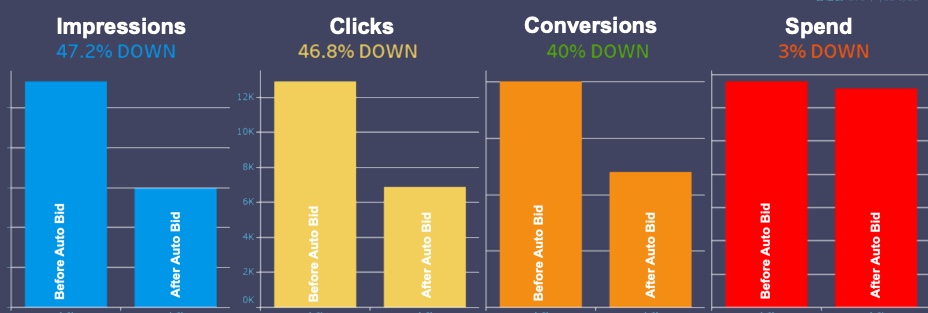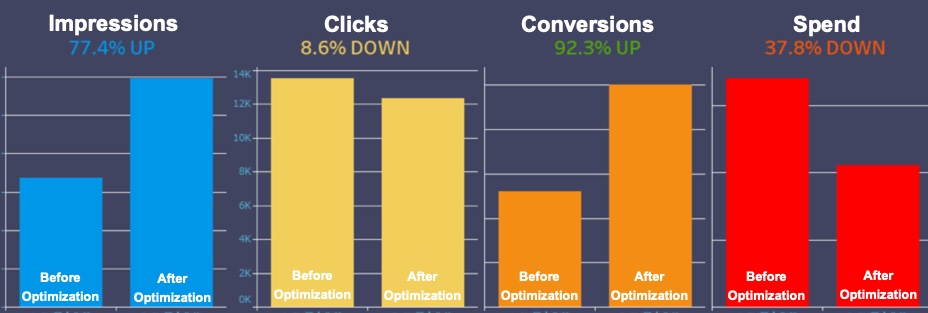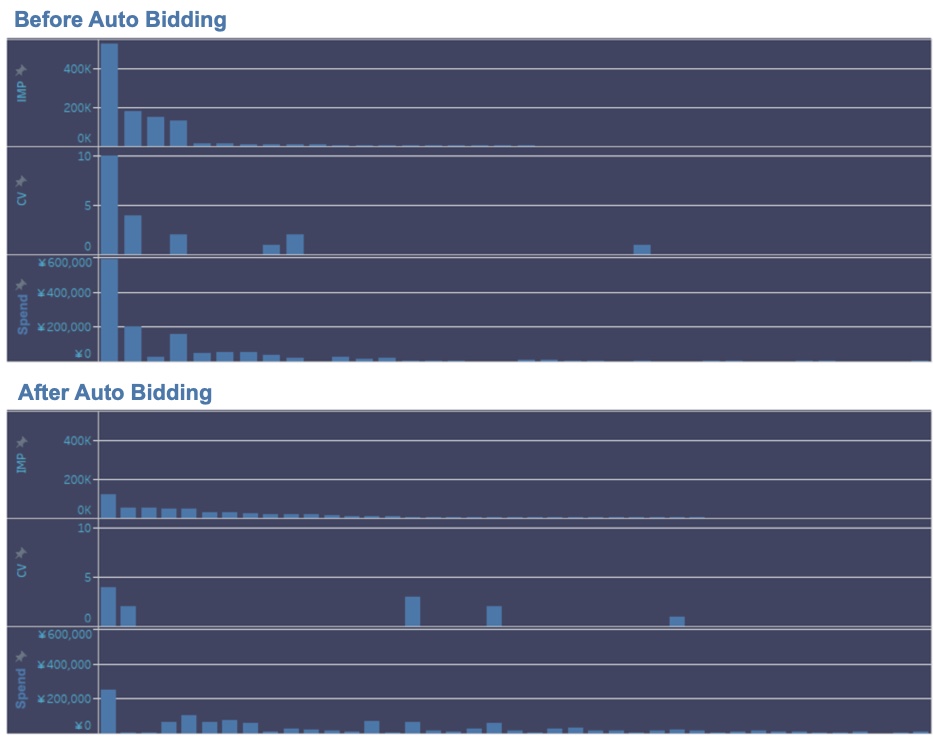How we improved conversions with Google Ads automated bidding
To begin with; Google Ads automated bidding is nice, but sometimes it can cause some devastating results. In this article, I would like to share my story of how things went down the hill, and how I recovered from it afterward. Since what caused such a disaster is rather a simple mistake, this article is for someone who has never used Google Ads automated bidding strategies.


To summarize what happened, with Google Ads account I was in charge of, I changed the bid strategy from Enhanced CPC to Target CPA bidding for one of the ad campaigns in July 2019. In the next month, CPA went out of control, so I ended up changing the bid strategy back to Enhanced CPC. In the following year of August, however, I changed the bid strategy for the same campaign to Maximize conversions bidding, and this went very well.

In this article, I am not trying to persuade anyone that Maximize conversion bidding is better than Target CPA bidding. Rather, I would like to share the story of how I failed with the bid strategy in the hope of preventing others from having terrible experiences like mine.
Let’s review the details:
Applied bidding strategy – Target CPA.
Campaign the strategy change was applied to – This particular account was consist of two campaigns; brand word and non-brand word campaigns. the strategy change was applied to the non-brand word campaign.
Budget – Approximately 1M yen per month.
The result – The following figure shows the comparison of three weeks span before and after the strategy change was applied.
Impression: 47.2% down
Clicks: 46.8% down
Conversions: 40% down
Cost: 3% down
CPA: Going up from $670 to $1m090

Causes of the failure:
There are two main factors that triggered my unfortunate event.
- The campaign consisted of too many ad groups.
- The campaign had not had enough conversions achieved before the strategy change.
I will explain each one with details.
1. The campaign consisted of too many ad groups.
Back at the time, the campaign I applied the bid strategy change had more than 100 ad groups. Those groups were created based on:
- whether associated keywords were a broad match or an exact match.
- whether an ad group was using remarketing lists for search ads or not.
- keyword combinations such as “apartment cheap,” “apartment studio,” etc, even though the search volume for them was quite low.
The figure below describes the spread of impressions, conversions, and costs respectively among all ad groups in the campaign before the strategy change. (each bar represents an ad group)
The one below is after the change to Target CPA bidding was applied.

As we can see, several ad groups had significantly more impressions than others before the change. After the change was applied, impressions were spread broadly to all ad groups, even to the ones that weren’t performing well before. As a result, we achieved some conversions from the ad groups that weren’t getting any, but the overall performance of the campaign declined, as stated before.
After this problem, I restructured the campaign with much fewer ad groups with only keywords that were performing well. At the end, more than 100 ad groups existed were reorganized down to five groups.
2. The campaign did not have enough conversions achieved before the strategy change.
Google often states that “it is strongly recommended to have ___ many conversions per month for the automated bidding to work properly.” Though the campaign met such a condition before I applied the bid strategy change, it’s quite possible that the campaign didn’t generate enough conversions beforehand.
Since I thought that acquiring enough conversions is necessary for Target CPA bidding to work efficiently, I applied Maximize conversions bidding after I shrank the campaign size to five ad groups. The summary of the comparison of three weeks span before and after the change is the following.
Impression: 77.4% up
Clicks: 8.4% down
Conversions: 92.3% up
Cost: 37.8% down
CPA: Going down from ¥130,622 to $1,300 to $420

Now, this is more like what I wanted to see in the first place. What was interesting was that with one group, though the spend went down, the number of impressions increased significantly. In fact, there were only four keywords associated with this group; one broad match and three exact matches.

The CPC for each keyword used to be more than 100 JPY, each one went down to between 70 and 90 JPY. Looking at the impressions, all exact match keywords greatly improved. By optimizing the time, devices, and all other targeting with automation, the reach has extended. As a consequence, the ad group acquired more conversions and therefore, the CPA lowered accordingly.
Which automated bidding strategy should be applied:
This time, by choosing to maximize conversions bidding strategy after reorganizing the campaign worked really well.
However, it is obviously not always the case. I had another experience that the CPA grew after I changed to Maximize conversions strategy.
After all, there is no right answer to this question. If you have no clue which automated bidding is suitable for your situation, it might be a good idea to consult Google Ads’ “Recommendations.” Though if you decided to go with what’s recommended, you need to keep your eyes on the account and check the performance frequently until you can guarantee that everything is under control.
Conclusion:
Considering that Google Ads now alerts us when we are not using an automated bidding strategy, it seems that Google really encourages ads publishers to use automation. It almost makes me think the manual bidding is strictly worse than automated biddings. It might be even possible that Google gets rid of the manual bidding altogether in the future.
No matter how useful automated bidding strategies become, it is important for ad publishers to operate PDCA, or also known as the “Shewhart cycle.”
- Plan the strategy.
- Do or execute.
- Check the result.
- Act or adjust afterward.
Automated bidding can only come into the place of “do,” and the rest is up to the humans to determine. Thus, what is important is neither fully depending on the automated bidding nor completely reject it, but adapt such strategies wisely into the above cycle of marketing stages.
Do you need support for your digital advertising campaigns?
Principle’s paid search, and social advertising service provides a data-driven approach that helps our clients’ businesses grow.
- Click here to learn more about our agency service for Paid Search Advertising.
- Click here to learn more about our agency service for Facebook Ads Management.
Arthur: Wahoo Yamamoto
PPC Consultant
